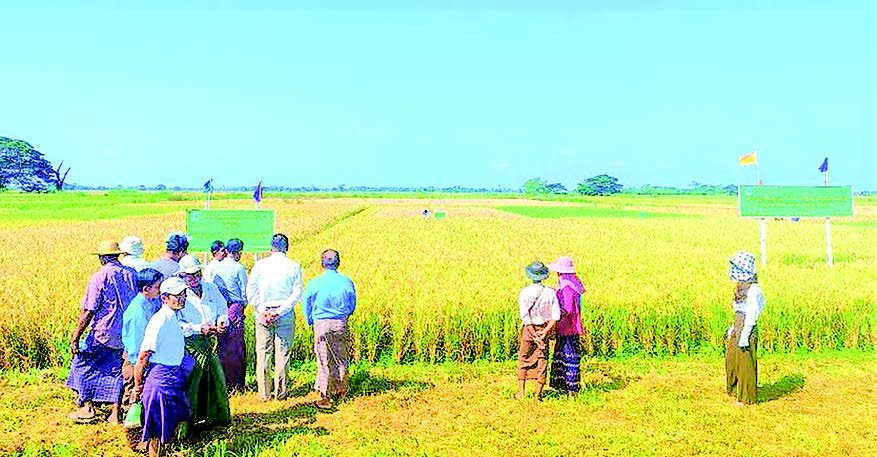ACCORDING to the Yangon Region Agriculture Department, 1,144,372 acres of monsoon paddy were successfully planted, with 442,006 acres harvested as of the last week of November.
The population in Yangon is increasing year by year, and the rice plantations is expanding to meet the consumption rate. The replantation was conducted in flood-hit paddy fields in monsoon, and 198,488 acres of monsoon paddy were harvested in the first week of November.
The rice varieties such as Sinthukha, 90-day, Yakyaw, Shwewahtun and Sinthukha are harvested in some townships of Yangon, whereas the export quality rice varieties of Pawsan will be harvested by November end and the processes will be complete in early January.
It is estimated that 1,148,222 acres of monsoon paddy in the region in 2024, and 1,111,802 acres were planted. A total of 70,000 acres of monsoon paddy were flooded due to the typhoon, and replantation processes made in 1,144,372 acres. Arrangements are being made to plant summer paddy in irrigated areas, and the region is estimated to grow over 250,000 acres of summer paddy.
The farmers, who harvested monsoon paddy, are ready to plant mung beans, black grams, sesame and sunflower. The region plans to grow over 400,000 acres of mung beans and black grams while over 9,000 acres of mung beans were completed. It is also estimated to grow 20,000 acres of edible crops peanut, sesame and sunflower. “The region government and relevant departments worked together to succeed in the plantation of monsoon paddy. The Myanmar Rice Federation and organizations provided the species of paddy and agrochemicals, and the department also conducted educating programmes to meet the target and use of fine species and natural fertilizer. Therefore, the monsoon paddy plantation was completed successfully. We have harvested over 400,000 acres of monsoon paddy.
The region government instructed to plant winter crops and summer paddy in scientific ways and change the farming methods to promote the production rate. As the monsoon paddy target is met, we will make an effort to meet the targets of winter crops and summer paddy,” said an official of the department.
The agrochemicals are provided to successfully plant the monsoon paddy using the State Economic Promotion Fund, and 35 companies and organizations provided K200,000 worth of fertilizer in 290 villages in 12 townships of five districts in the region. Moreover, the urea fertilizers produced by Myanma Petrochemical Enterprises were also distributed to the farmers.
MNA/KTZH
#TheGlobalNewLightOfMyanmar

